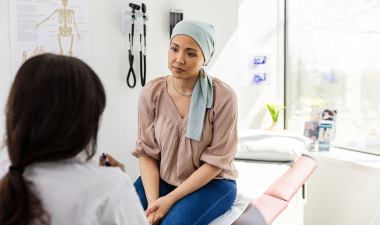Understanding the early signs of vulvar cancer is essential for timely medical attention and better outcomes. While symptoms may vary, being aware of changes in this sensitive area can help individuals recognize when something isn’t right. This guide highlights common early indicators and provides helpful insights on when it may be important to consult a healthcare professional.

What Are the Early Vulvar Cancer Symptoms to Watch?
• Unusual skin changes in the vulvar area, such as discoloration or thickened patches, may signal something abnormal.
• Persistent discomfort, tenderness, or soreness that doesn’t improve over time can also be an early sign.
• Small lumps, growths, or open sores that do not heal should be carefully monitored.
What Are the Warning Signs of Vulvar Cancer in Women?
• Burning sensations or pain during urination or daily activities may indicate irritation linked to vulvar conditions.
• Noticeable swelling or unusual texture in the vulvar skin can sometimes point to early cancer-related changes.
• Any unusual or unexplained discomfort in the area should not be ignored.
How Can Persistent Itching Be Linked to Vulvar Cancer Risk?
• Chronic itching that doesn’t improve with standard care can sometimes be associated with underlying conditions, including cancer risk.
• Itching accompanied by visible skin changes, such as scaling or redness, should be taken seriously.
• While itching alone does not always indicate cancer, its persistence is a sign worth evaluating.
What Causes Vulvar Bleeding Not Related to Periods?
• Bleeding that occurs outside of the menstrual cycle or after menopause may be an important warning sign.
• This type of bleeding could result from lesions, sores, or abnormal tissue growth.
• Any unexplained bleeding should be evaluated by a healthcare provider as soon as possible.
Which Early Signs of Vulvar Cancer Are Treatable?
• When identified early, abnormal skin changes or small lesions can often be treated effectively.
• Many early-stage conditions are manageable with timely medical attention and follow-up care.
• Awareness and early action can make a significant difference in treatment options and overall health.
When Should You See a Doctor for a Vulvar Lump or Sore?
• If a lump, sore, or ulcer does not heal within a few weeks, medical advice should be sought.
• Painful or recurrent lesions are another sign that requires attention from a healthcare professional.
• Early consultation ensures that potential issues are identified and managed promptly.
Conclusion
Being aware of the early signs of vulvar cancer is crucial for timely detection and care. Unexplained changes, persistent itching, abnormal bleeding, or unhealed sores should never be overlooked. By recognizing these indicators and seeking professional guidance when necessary, individuals can take proactive steps toward protecting their health.

